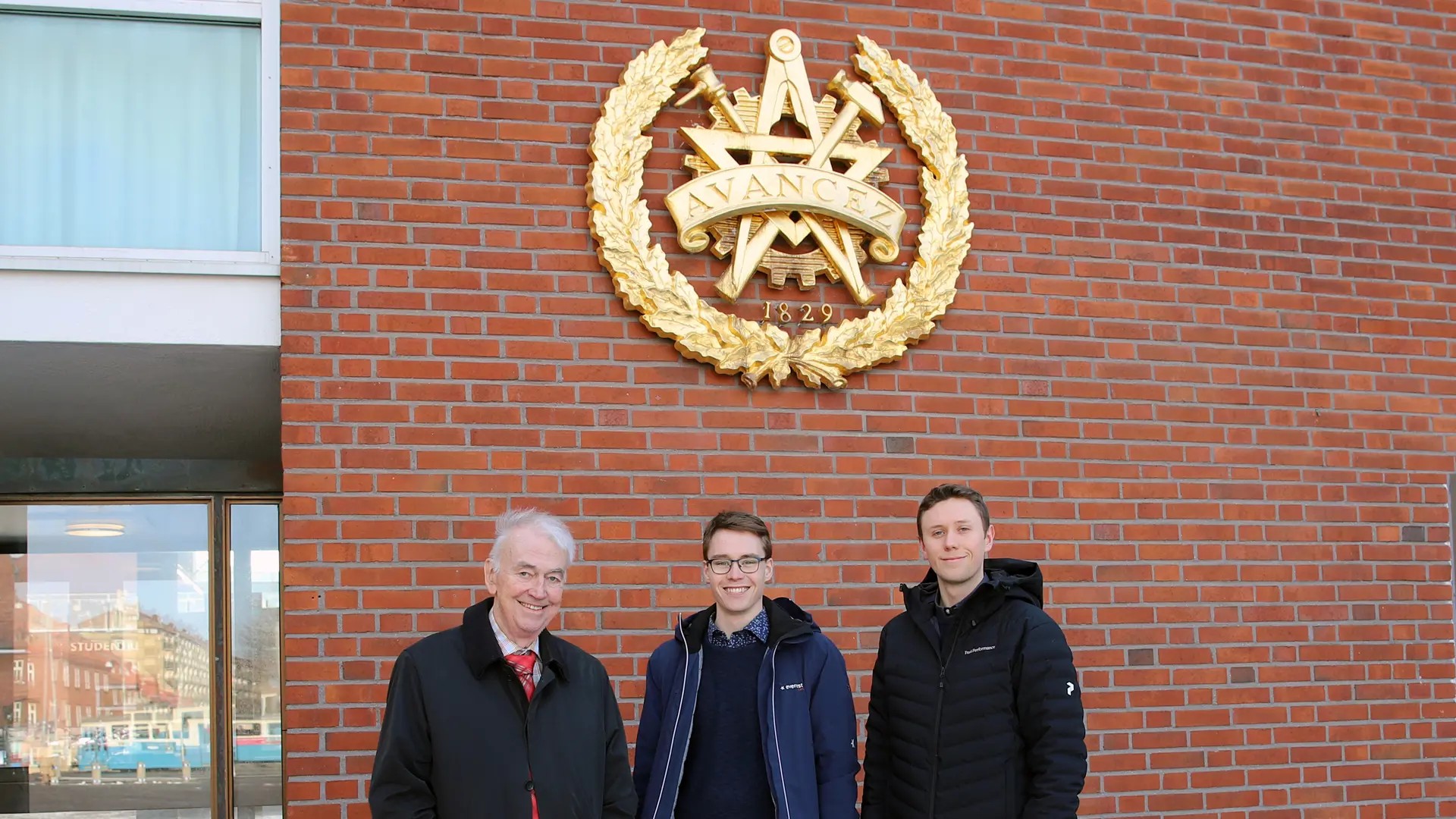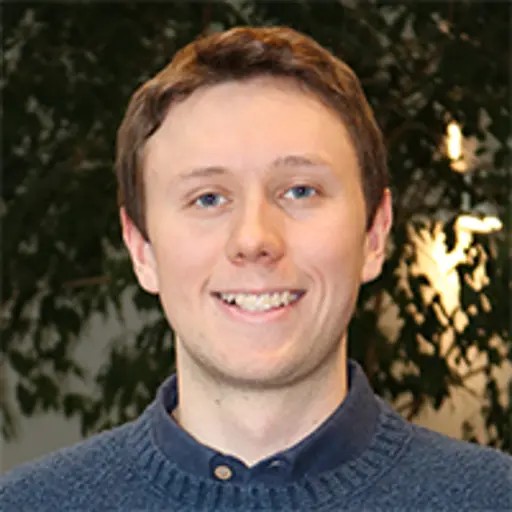
Bert-Inge Hogsved with this year's winner of Bert-Inge Hogsved Award for Best Entrepreneurship; Eric Lindgren and Simon Pettersson Fors. Photo: Hogia
Two students at Chalmers University of Technology have developed a new learning platform for the study of mathematics, engineering and physics in higher education. The platform provides teachers and students with a common educational environment and access to the same information, so that students have equal learning opportunities regardless of geographical location and individual level of knowledge. They have now been awarded the Bert-Inge Hogsved Award for Best Entrepreneurship by the Forum for Engineering Physicists at Chalmers.
Simon Pettersson Fors and Eric Lindgren are the recipients of this year’s Bert-Inge Hogsved Award for Best Entrepreneurship. The award was established in 2011 by Bert-Inge Hogsved, himself an engineering physicist. The award is presented annually to students studying the programmes Engineering Physics, Engineering Mathematics or Chemical Physics with Engineering Physics. The intention is to highlight entrepreneurial initiative among students at Chalmers.
A study conducted by the Swedish Board of Student Finance (CSN) in 2020 revealed that diminished mental wellbeing is significantly more common among students than skilled workers. Studies were perceived as overly demanding and stressful.
“As a student, one is often frustrated, unable to make progress, something that creates stress. On our learning platform, it is easy to get help. Anyone can ask a question and it can be answered by both other students and teachers. All students remain anonymous in order to remove the stigma attached to ignorance,” Simon Pettersson Fors, doctoral student at the Department of Microtechnology and Nanoscience.
The learning platform, Yata, is an open forum that facilitates joint discussion to solve various problems. As all questions and answers are available to everyone, the platform can help many students simultaneously. All information is saved for posterity, making the learning platform a knowledge bank for future students and a tool for streamlining teaching.
For teachers, the primary benefit is saved time. A teacher can speak to the entire group at once, rather than emailing individual students. It also provides them with an opportunity to check that students are on the right track in their reasoning and plan the next stage of teaching based on ongoing discussions in the forum. They can also use earlier pedagogical posts by former teachers and students.
“There are many learning platforms on the market but few aimed at learning physics, engineering and mathematics at higher education level. It’s great to be involved in solving problems that one has personal experience of as a student,” says Eric Lindgren, doctoral student at the Department of Physics.
Contact
Simon Pettersson Fors
- Doctoral Student, Applied Quantum Physics, Microtechnology and Nanoscience
Eric Lindgren
- Doctoral Student, Condensed Matter and Materials Theory, Physics

